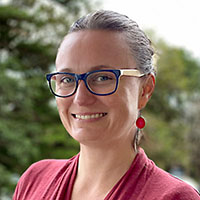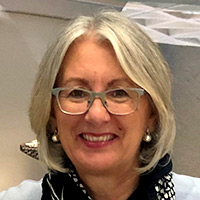Led by an Executive team, and supported by a Community of Practice, the Frailty Taskforce focuses on how to improve care for people living with frailty or at high risk of becoming frail. This includes strengthening a more integrated approach to frailty, ageing well and end of life care. The Frailty Taskforce explores and advises on all aspects of the frailty spectrum.
The focus will take a phased approach and incorporate the care continuum before, and beyond the inpatient setting. It recognises primary and community care as integral components in a patient’s journey and the importance of transitions between settings for people living with frailty. Interventions and actions across these care settings may have the following focus areas:
- Identification of frailty and those at high risk of frailty;
- Shared care planning and shared decision making that includes a process for goal setting, including advance care directives;
- Early and ongoing mobilisation and physical activity;
- Polypharmacy and de-prescribing inappropriate therapies, and
- Optimising nutrition for people living with frailty or at risk of frailty.
Executive team

Professor Sue Kurrle
Geriatrician Hornsby Ku-ring-gai and Eurobodalla Health Services; Clinical Director NSLHD Rehabilitation and Aged Care; Curran Chair in Health Care of Older People Faculty of Medicine and Health, USyd

Professor Ken Hillman
Professor of Intensive Care, Liverpool Hospital; Director of the Simpson Centre for Health Services Research, UNSW; Ingham Institute for Applied Medical Research

Genevieve Maiden
Allied Health and Integrated Care Manager (Physiotherapist), War Memorial Hospital, SESLHD.

Helen Tuxworth
Carer representative
What is frailty?
Frailty is a common syndrome that occurs from a combination of de-conditioning and acute illness on a background of existing functional decline that is often under-recognised.
Frailty is characterised by a decline in functioning across multiple physiological symptoms, accompanied by an increased vulnerability to stressors. It is associated with increased mortality, hospitalisation, falls and admission to long term care. There is also much individual burden for a person living with frailty, including impaired quality of life and loneliness.
It is important to note that frailty is not an inevitable result of ageing and can be treated and in some cases, even reversed.
Why focus on frailty?
Not all older people are frail and not all people living with frailty are old. However, it is important to identify frailty early in order to combat the condition and it effects.
Once frailty is established, other geriatric syndromes are more likely to emerge, e.g falls, incontinence, functional decline, pressure areas, mild cognitive impairment and delirium.
In 2018, the ACI embarked upon an investigation of overdiagnosis and overtreatment in older people living with frailty. The Overdiagnosis and overtreatment in the frail elderly report looked at a range of evidence and found that:
- people raised concerns about how frailty is defined, the choices they are given and decision making processes, their quality of life, and varying levels of health literacy;
- people with polypharmacy (≥5 drugs) and hyper-polypharmacy (≥10 drugs) have higher frailty scores, and
- over-diagnosed diseases included chronic kidney disease, hypothyroidism, prostate/breast cancer, hyperlipidaemia, hypertension and dementia.
- While research evidence is limited, positive effects ( arise from deprescribing efforts, other decision support tools and shared decision making and that culture and leadership is key within the healthcare setting.
The Frailty Taskforce was established in December 2019.